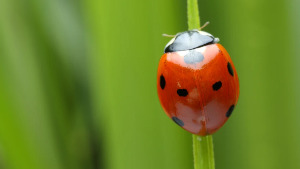
The world’s insect numbers are shrinking and threatening nature. This is causing a catastrophic change in nature’s ecosystems. The numbers are dropping so fast that it is becoming a global crisis.
The world is at the start of a sixth mass extinction. Eighty percent of insect biomass has vanished in the last 25-30 years. Insects are the most plentiful and varied animals, their biomass being 17 times greater than that of humans. They are important for all ecosystems, as food, pollinators, and recyclers of nutrients. Insects are the center of every food web, they pollinate many plant species, control pests, keep the soil healthy, and much more. The decrease in insect populations has been reported in several countries.
Extreme agriculture and deadly pesticides are the biggest causes of the shrinking number of insects. Urbanization, climate change, synthetic fertilizers, and pesticides are also major contributing factors. Organic farms have had more insects in the past because the pesticides used back then didn’t cause the decreasing numbers that have been seen in recent decades. Rising temperatures, light pollution, human overpopulation and overusing resources are driving insects to their death.
Insect losses are gravely affecting the many animals that depend on them. If their food source disappears, then these animals will starve to death. If these animals die, humans will suffer as well. There isn’t a lot of information concerning the loss of flies, ants, crickets, and aphids, but there’s no reason to think they’re doing better than the studied species. One-third of insect species are endangered and more than 40 percent are dropping. The extinction rate is eight times faster than mammals, birds, and reptiles.
While some insect species are increasing in population, it’s not enough to make up for the total loss. The total mass of insects is falling by 2.5 percent a year, meaning it’s possible they could die within a century.
[Source:
The Guardian
]

